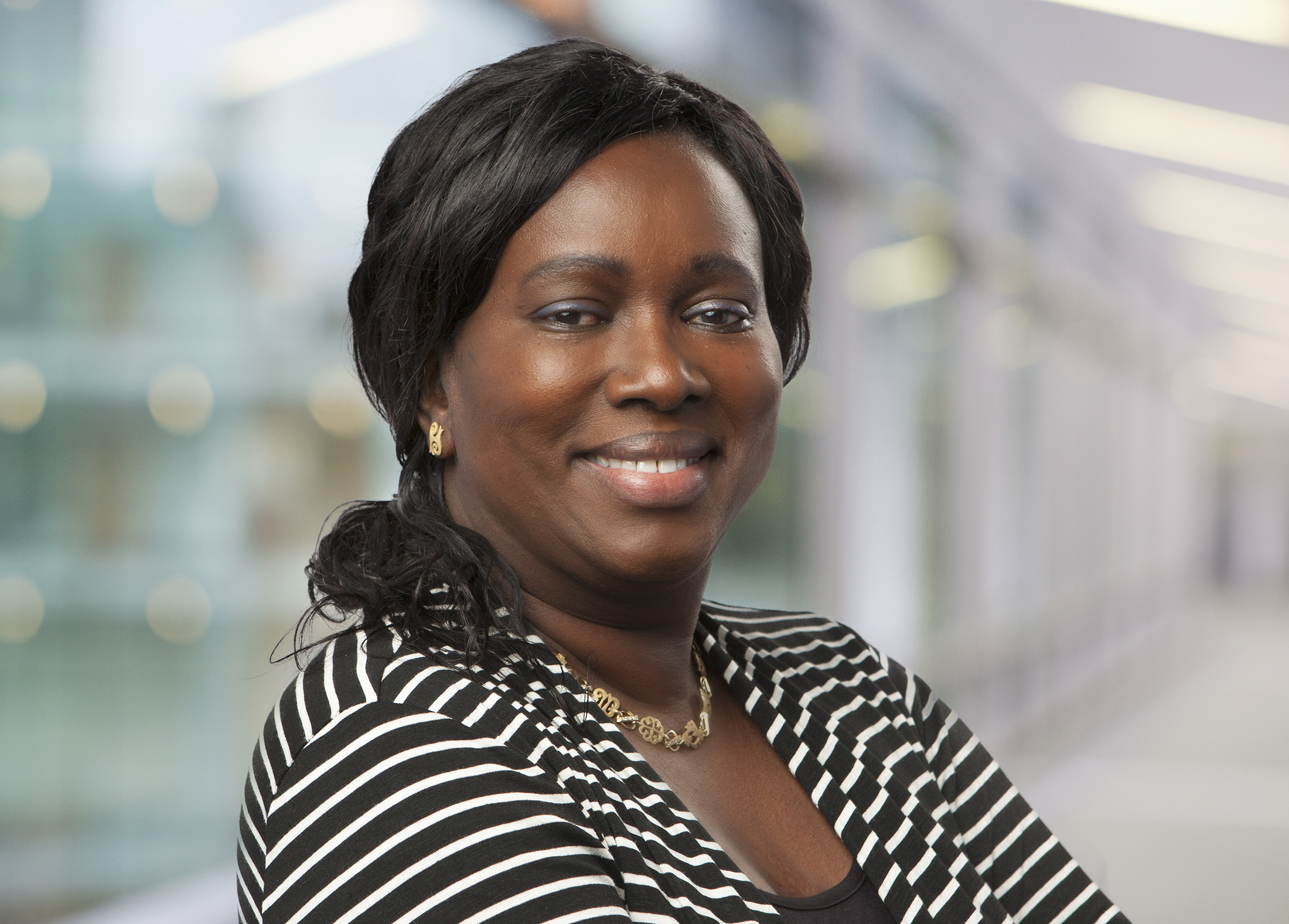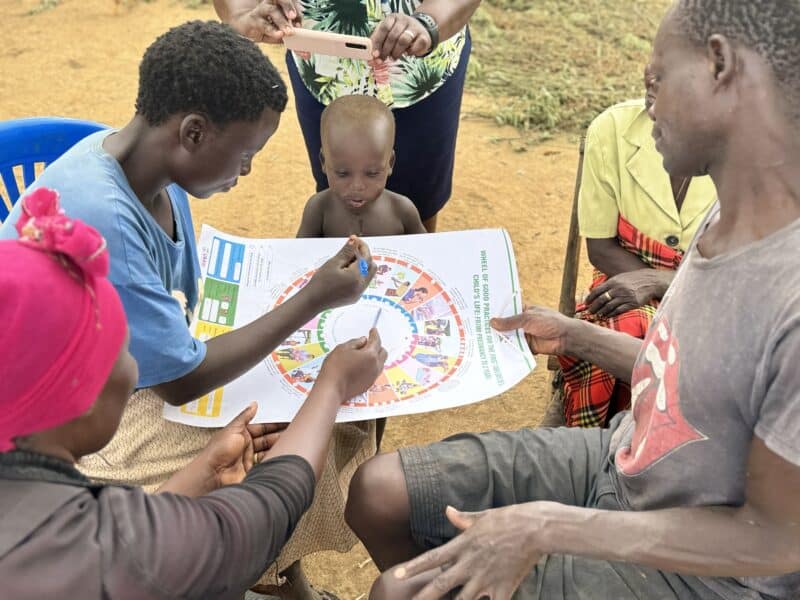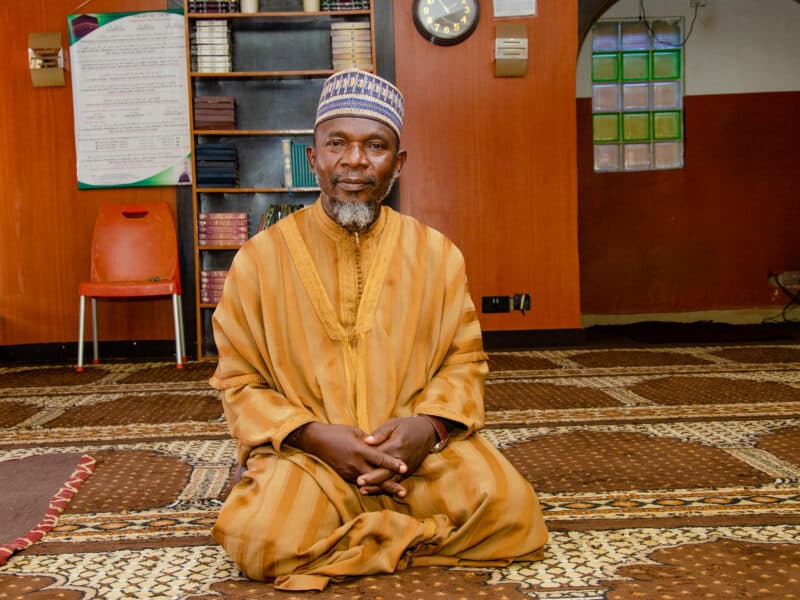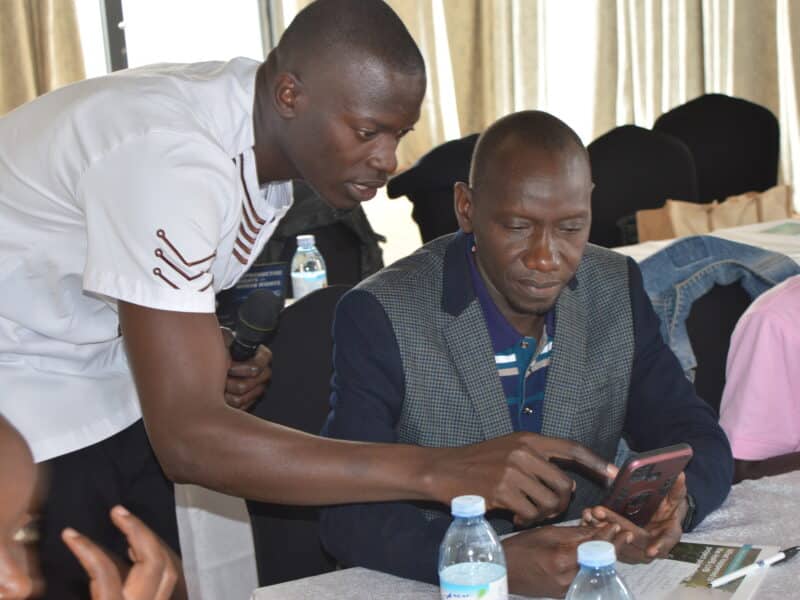Rodio Diallo, a senior program officer at the Bill & Melinda Gates Foundation, manages the Foundation’s family planning portfolio in Nigeria. Diallo’s role has included oversight of the Nigerian Urban Reproductive Health Initiative (NURHI), which is led by the Johns Hopkins Center for Communication Programs. The initiative officially ends this year after a decade of success and this week holds an official closing ceremony. CCP’s Stephanie Desmon recently spoke to Diallo about the 10-year partnership between the Foundation and CCP to improve family planning in Nigeria’s cities.
Stephanie Desmon: What was it about NURHI that made it different from previous family planning projects?
Rodio Diallo: NURHI provided homegrown evidence-based, high-impact family planning interventions that radically transformed the family planning landscape in Nigeria. That was unique and different in that most of the projects don’t last as long as NURHI and the Foundation deliberately chose to really take the long-term view in this partnership, providing resources so that homegrown evidence in family planning could be gathered and brought at scale. To that end, the Foundation in parallel funded monitoring and evaluation partners to develop a robust evidence base that has advanced the field of urban family planning over the last 10 years.
SD: Why is having homegrown evidence so important?
RD: The evidence was generated for and by the people who are the beneficiaries, for the people who are going to use it. It’s relevant to their context, to their culture and to their environment. That’s the power of having homegrown interventions because you understand the landscape, the culture, the nuances, and the evidence you generate is generally relevant to the context.
SD: What would you say are the biggest accomplishments of NURHI?
RD: The biggest accomplishment that NURHI provided in the family planning landscape started with how we approached family planning by blending supply, demand and advocacy to maximize family planning service outcomes.
The second biggest accomplishment is the innovation of building an interfaith coalition that rallied traditional leaders, Muslim and Christian leaders to amplify the benefits of child spacing, family planning and the well-being of the mother, the child, the family and the community at large. And the data tell us that the target group listened to the community leaders and to the religious leaders. Building an interfaith coalition was a powerful approach to sustain family planning messages.
The other big accomplishment is how, over the 10 years, NURHI has worked to strengthen and amplify local voices for relevant advocacy. Advocacy is now done by local voices and their capacity has been strengthened over time. They can now track budget lines and budget releases. They hold stakeholders accountable and they keep family planning high in the agenda at local community and state levels. That is a big accomplishment and that is a truly sustainable way to make sure that, beyond the life of the project, gains will be sustained and there will be voices at the community level that care about family planning and make sure resources will be allocated.
One big last accomplishment is that the team used the sustainability lens and leveraged the latest evidence for family planning programming over the years to build the capacity of state partners so they could enhance leadership, family planning governance and accountability. In addition to generating homegrown evidence-based, high impact family planning interventions, the team would go above and beyond to leverage any evidence from the global community and adapt it to the local context so that people in Nigeria could benefit.
SD: I wanted to ask about that. With NURHI ending, will its gains in family planning be sustained in Nigeria?
RD: Yes. Definitely. Given the fact that the whole journey started with sustainability in mind, at every step of the way. Sustainability doesn’t happen overnight. It’s a long process. And you work on it at every step. The team is leaving behind strong civil society organizations with the capacity to track and advocate for family planning including budget tracking and budget release. They leave behind a wealth of best family planning practices and highly capable stakeholders who can leverage the technical resources and tools developed and tailored to the Nigerian context. Several states have already adopted some of the resources as has the Federal Ministry of Health. These include the framework for how to conduct a 72-hour clinic makeover, interfaith messages on child spacing, key contraceptive training manuals and more. These are profound system changes that come with mindset shift and that, to me, is sustainability.
Another sign of sustainability is that family planning is no longer taboo in Nigeria. We still have a long way to go, but the work the Foundation has supported over the last 10 years has contributed to the shifting of the social norms. Also, key best practices have now been adopted for implementation even in states where NURHI wasn’t working. And we have seen other donor partners funding high-impact family planning interventions in the states they support. States are mobilizing their own resources to fund the refurbishment of health facilities based on the 72-hour makeover process. So those to me are also important milestones when it comes to sustainability.
SD: Is the current COVID-19 pandemic stealing attention and resources from reproductive health?
RD: The overall trend we are seeing with COVID-19 — which it is not just in Nigeria — is a decrease in maternal, neonatal and child health and family planning. The Foundation has rallied the global community to stress the critical need of ensuring that these essential services are maintained to sustain the gains we have made.
We have a different funding stream to support country COVID response, so I can say that the Foundation’s resources allocated to reproductive health and family planning were not diverted to deal with COVID. We want to make sure essential services continue during the pandemic, especially at the primary health care level. The big challenge, of course, that we all face is what is happening in weak health systems. There is an opportunity to further harness the private sector to ensure access to family planning continues.
SD: What do you want the people of Nigeria to know about the future of family planning?
RD: Family planning remains a priority for Nigeria and for the Foundation, and we remain committed to supporting the national family planning blueprint in various forms as we have done in the past. Family planning is even more relevant in the context of Nigeria given the large youth population. The country needs to succeed in their demographic transition to reap the economic growth potential of having so many young people entering the workforce. And we all know the economic benefits of family planning. I think there is momentum here and family planning remains a priority.
The Challenge Initiative (TCI), another Foundation project led by CCP in Nigeria, provides the opportunity to accelerate family planning progress by implementing high-impact interventions that were seeded by NURHI over the last 10 years. After successfully demonstrating what works in family planning in Nigeria, it is time to evolve into a more agile mechanism that allows any Nigeria state to use their own financial resources to continue what we have started.





